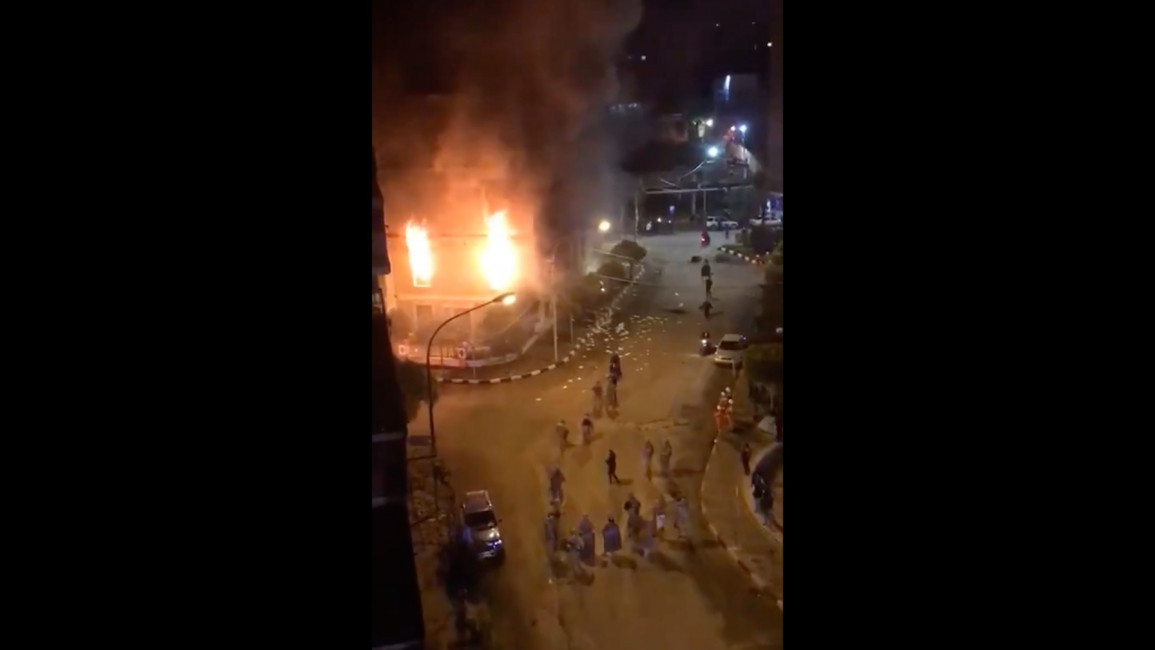Protesters torch Tripoli's municipality building as anger at Lebanon's corrupt political class grows
The municipality building in Tripoli, Lebanon’s second largest city, has been burned Thursday night down as protestors continue to make demands for justice as the coronavirus pandemic worsens corruption-induced poverty.
Videos of the building being raided and torched went viral on social media, with locals calling for justice and the downfall of the political class.
The civil defence was able to tame the fire inside the building within just over an hour and said the material damage is severe.
The mayor of Tripoli, Riyad Yamak, said that no one had been hurt but claimed that the protesters were trying to "distort" the aims of the protesters.
"What happened from the burning of the municipality and public facilities in the city is to distort the image of the revolution," he said.
At least four people have been arrested by the army.
Prior to the incident, police were filmed using excessive teargas and other forms of violence on angry civilians.
|
||
The unrelenting protests in Tripoli, now in their fourth day, came as Lebanon grapples with both the pandemic and the worst economic crisis in its history, with only a caretaker government in charge.
The protests resumed shortly after Omar Taibi, a 30-year-old who was shot by security forces during protests on Wednesday night, was laid to rest in Tripoli. More than 220 others were injured in the overnight clashes as frustrations boiled over.
The demonstrators denounced Lebanon’s extended shutdown that has exacerbated already dire conditions. The confluence of the crises has posed the biggest threat to Lebanon’s stability since the end of its civil war in 1990.
Tripoli, Lebanon’s second largest city and its most impoverished, has been a centre for demonstrations and rioting against the country’s political class. Smaller protests were reported Thursday and earlier in the week in Beirut and the eastern Bekaa region.
Even before the crises, almost the entire Tripoli workforce depended on day-to-day income. A September study by CARE International in the city of over 250,000 found that the average household income is 145,000 Lebanese pounds — or less than $20 at the current average black market rate — 33% of those sampled were unemployed.
Dozens of young men have been taking part in the nightly protests in Tripoli, throwing rocks at security forces and in some cases, torching vehicles. On Wednesday, protesters repeatedly tried to break into the municipal building. Some lobbed hand grenades at security forces, who responded with water cannons, volleys of tear gas and finally, live ammunition.
Agencies contributed to this report.
Follow us on Facebook, Twitter and Instagram to stay connected



